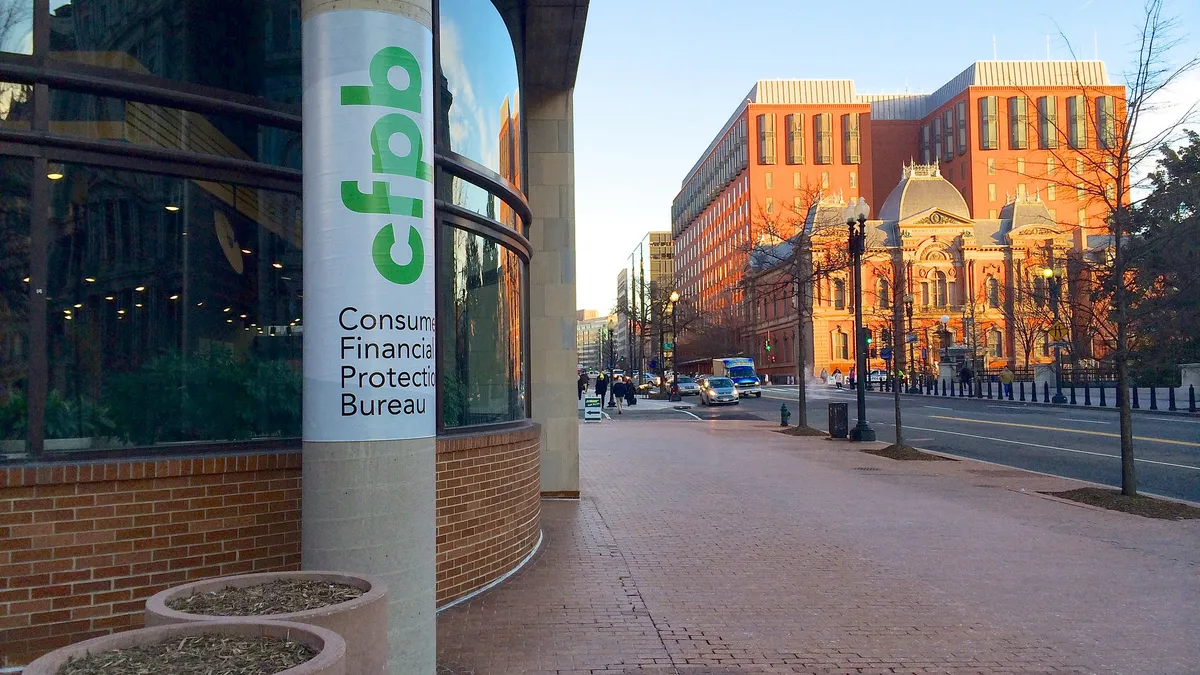At least two financial regulators this week stepped up their commitment to strengthen enforcement. In a blog post Wednesday, Consumer Financial Protection Bureau (CFPB) Acting Director Dave Uejio called out companies that have been slow to address consumer complaints — and said consumer advocates have found disparities in some companies' responses to concerns raised by Black, Brown and indigenous people.
"This is unacceptable," Uejio wrote. "Elevating the voices of those consumers who are suffering due to the pandemic and from racial inequity is the most important way to ensure that the CFPB is doing the best we can for those who need our help the most at this moment in history."
Uejio said he directed the bureau's consumer response unit to draft a report identifying companies with track records of lagging or disparate follow-up to complaints. "We will be publishing this analysis and the senior leadership of these companies can expect to be hearing from me," he said.
The CFPB sends complaints submitted through its public portal directly to financial firms, along with any documents the consumer provides. Companies generally must respond within 15 days.
"Consumer complaints are our lifeblood; our direct connection to consumers in distress, and they are at an all-time high right now," Uejio said. "The Bureau must transition from treating consumer input as mere anecdotes or stories to a world in which the experience of our neighbors, our families, and our communities serve as crucial data that drives our policymaking."
The CFPB received 352,400 consumer complaints in 2019, and 81% were sent to companies for review and response, American Banker reported. It's entirely likely 2020's complaint total topped that figure. The bureau received 187,547 complaints from Jan. 1, 2020, to May 31, including a monthly record 42,774 in April, American Banker found.
The complaint database can also act as a feeder for enforcement actions. The bureau filed 48 enforcement actions in 2020 — its second-highest yearly total — after a precipitous drop in 2018 and gradual increase in 2019.
Uejio said he intends to reach out to consumer, civil rights and racial justice groups to improve relations there, and to update the CFPB's website with a more user-friendly interface.
Meanwhile, the Securities and Exchange Commission (SEC) moved to give more enforcement supervisors the authority to launch investigations, according to The Wall Street Journal. The SEC consolidated that authority between two officials during the Trump administration, which said doing so would yield more consistent decisions about which tips and complaints justified investigations.
"Returning this authority to the division's experienced senior officers, who have a proven track record of executing it prudently, helps to ensure that investigative staff can work effectively to protect investors," Allison Herren Lee, the SEC's acting chair, said Tuesday, according to the Journal.
The move gives 36 senior officials the power to subpoena companies and individuals for records and testimony, an expansion the agency's acting enforcement director, Melissa R. Hodgman, said would improve the process by "empower[ing] the senior officers closest to the facts of the case."
SEC staff can explore suspected wrongdoing without getting approval for a formal investigation. But informal inquiries must be closed after 60 days or be converted into an investigation.
New investigations during the Trump administration fell from 1,063 in 2016 to 827 in 2019, The Journal reported, citing the SEC's most recent published figures. The number of completed enforcement actions dropped to 405 in 2020 from 548 in 2016, the publication found.
In 2020, however, the median time frame from when an investigation is opened to when an enforcement action is filed dropped to a five-year low of 22 months, according to SEC data, and enforcement fines jumped to a record $4.6 billion.














